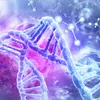Rare Disease Day: Karnataka aims to become pioneer in diagnosis and treatment of rare disorders
Through emphasis on multi-disciplinary research, Karnataka aims to become a pioneer in diagnosis and treatment of rare diseases, the state government said.
More than 70 million people are suffering from rare diseases in India. In order to find solutions for challenges related to rare diseases, the public, and private sectors are making concerted efforts to come together and take collaborative action.
To advance efforts being made by researchers, startups, and scientists to ease diagnosis and treatment of rare diseases, there is a need for governments as well as private philanthropic arms, corporate CSR divisions, and impact investors to provide the necessary support for funding, production, marketing of drugs, and awareness creation.

India needs to focus more on rare diseases.
One such state government that seeks to be a pioneer in diagnosis and treatment of rare diseases is the Karnataka state government, which according to Dr. Meenakshi Bhat, Senior Faculty at Bengaluru-based Centre for Human Genetics (CHG), is already one of the foremost leaders in the country when it pertains to creating awareness and supporting diagnostic and treatment efforts through funding and a favourable state policy framework for rare disease treatment.
“We want Karnataka to become a pioneer in diagnosis and treatment of rare diseases through emphasis on multi-disciplinary research. Particular emphasis is also placed on application of genomic sciences and other biotechnologies for effecting substantive health access for rare diseases affected communities,” says said Dr. Balasubramanya S, Senior Consultant, Karnataka Innovation and Technology Society (K-tech).
He adds also that the Department of Electronics, IT, BT and S&T is ready to facilitate networking between research institutes and the biotech industry to enable research for rare diseases and other deficiencies.
“I think not only are the support groups in Karnataka very active, but we also have a very robust genetics team, whether it is a coalition, or the diagnostic laboratories. They have all been supported through CHG from the government. We also have very learned people in the government that understand the necessities of thinking ahead in this field,” Dr. Meenakshi says.
The Centre for Human Genetics is mainly involved in advanced research, education, and specialised training in human genetics and genomics, especially in the context of human disease. The Karnataka-government backed organisation is also working towards researching rare diseases. Centre for Human Genetics also provides free diagnosis and counseling to patients fighting genetic disorders.
According to K-tech (Karnataka Innovation and Technology Society), the Karnataka government has been supporting the Centre for Human Genetics for over 15 years, understanding the need for clinical research and innovations in the treatment and management of rare diseases.
Along with the Karnataka government, the central government has also ramped up its efforts to fight rare diseases in the country. Earlier this month, the Ministry of Health and Family Welfare revealed the Draft National Policy for Rare Diseases, and is inviting comments, suggestions, and views from stakeholders.
Dr. Meenakshi notes that while a lot more needs to be done for solving this problem, the national draft policy is a good start.
Edited by Anju Narayanan







